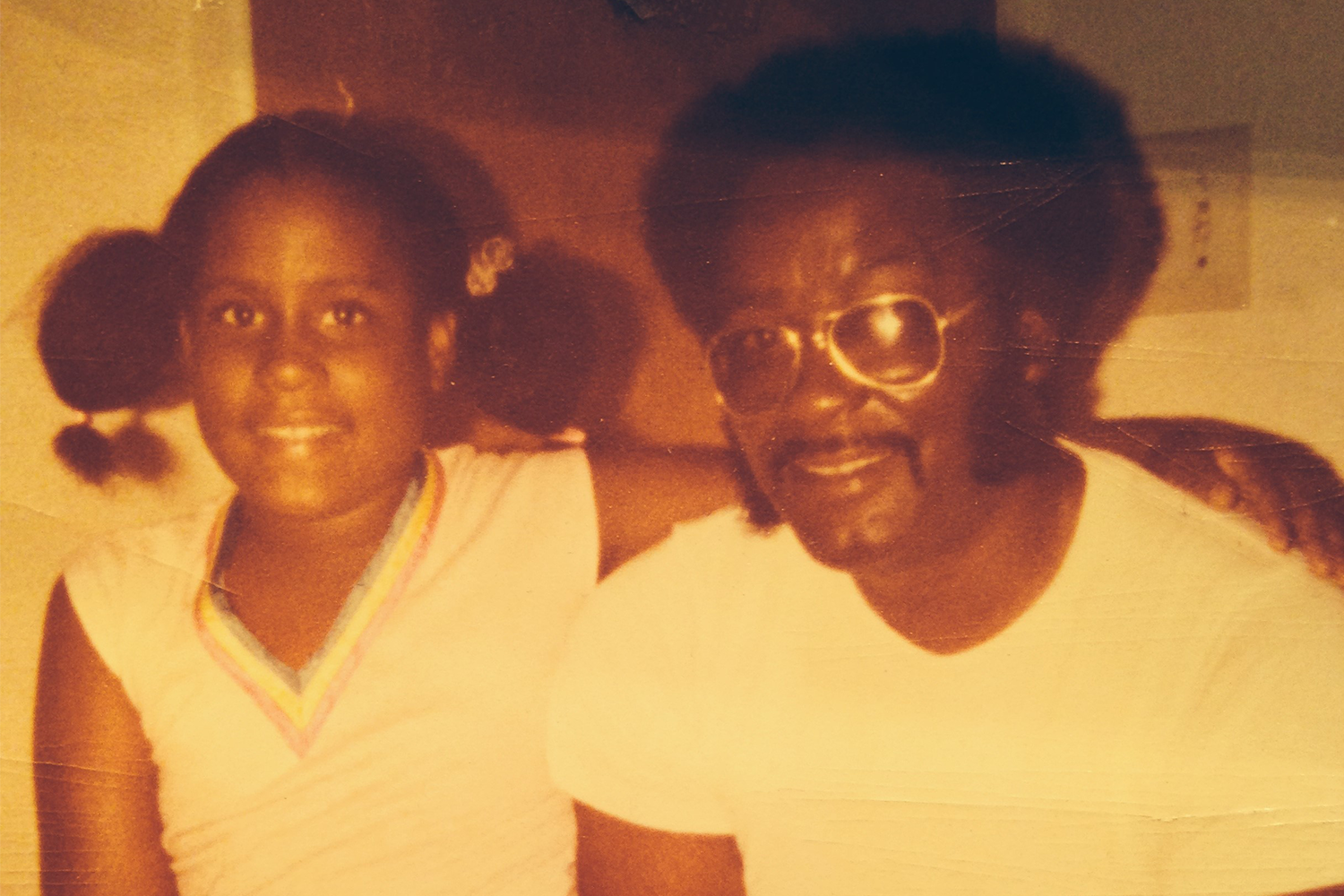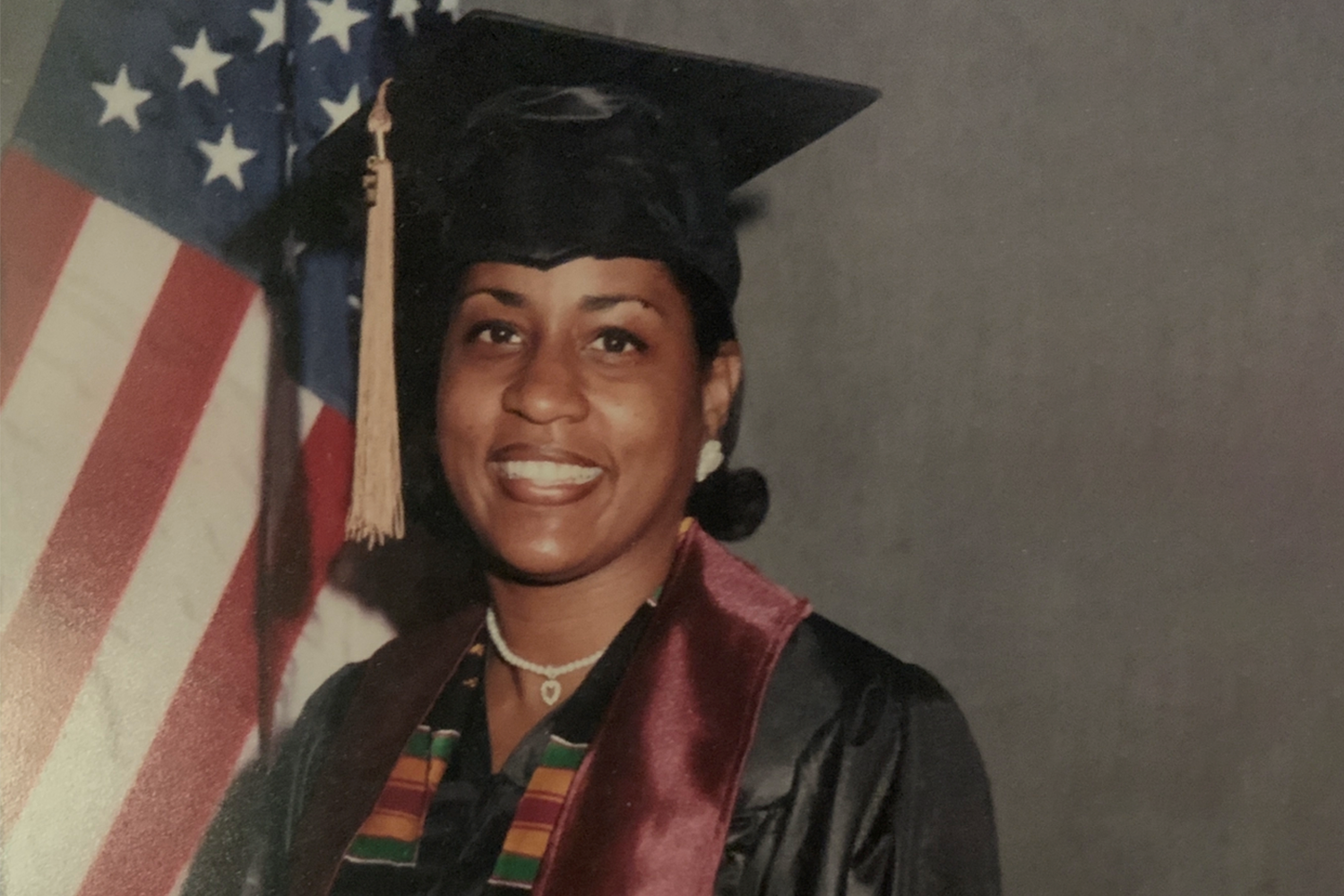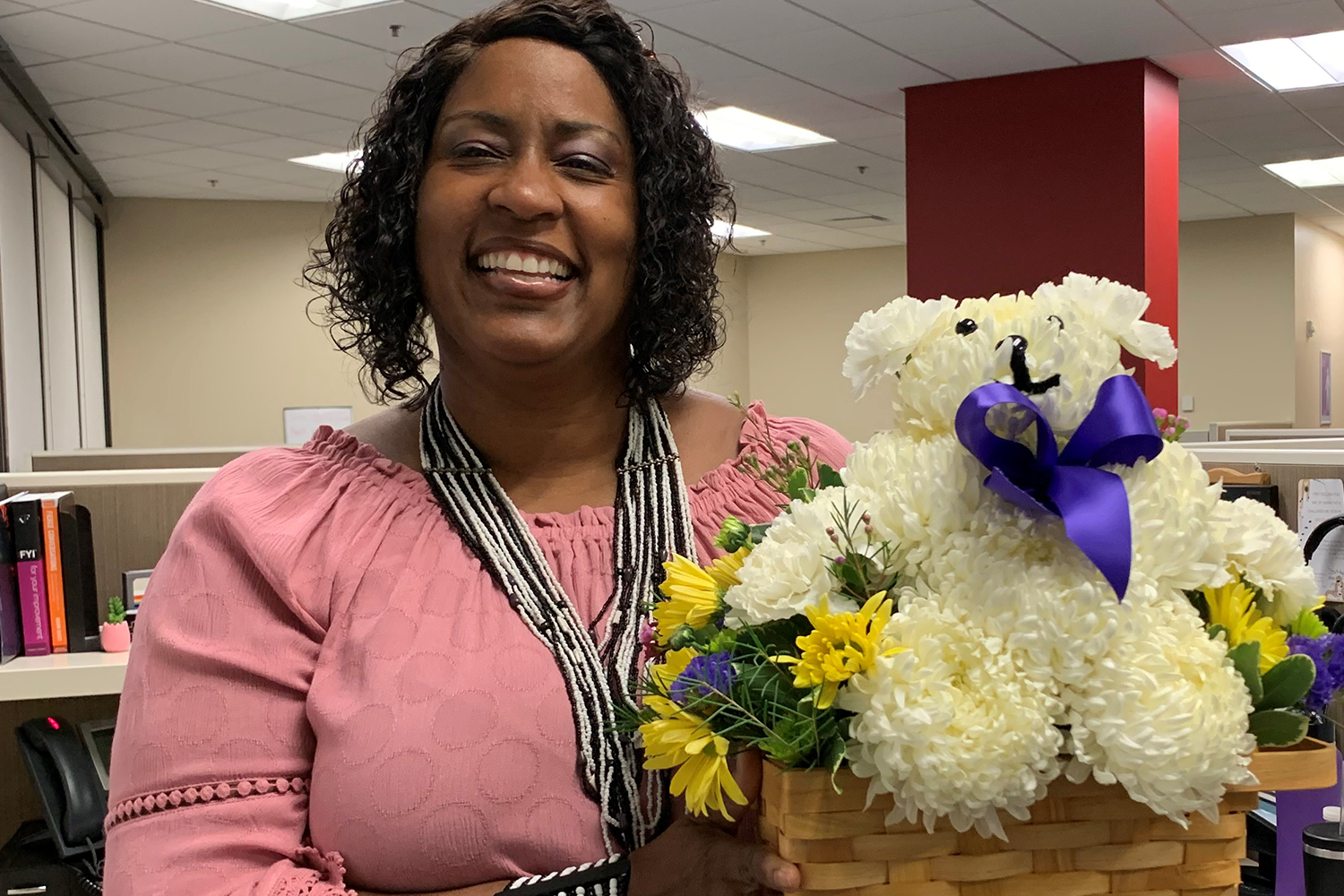In 2021, Black History Month celebrates Black community, representation, identity and diversity.

By Ursula Boudreaux
Technology Training Manager
As I learn from Afro-Latinos and biracial people at Crowley, I look at Black History Month as an opportunity to tell my story as a female in the tech industry who happens to be African American. I’m Crowley’s Technology Training Manager and I’ve been with the company for four years.
My mother and father grew up during World War II, the Civil Rights Movement, and the Women Rights Movement. Though they grew during the same era, they had very different experiences. My mother didn’t face much racism growing in Kansas City, Mo. However, my father got the other side of the coin as he was born into deep-rooted racism in Hawkinsville, Ga. As a youth, he had to pick cotton, peaches, and peanuts for low wages of $1 to $3 per hundred pounds to help his family. When he turned 17, he joined the Navy to escape the conditions of the south and ended up having a 30-year career in the Airline industry.
My parents met in sunny San Diego, Calif., where I was born. Growing up in this diverse town with a large military presence, I was encouraged to explore new avenues and was supported to pursue education. I was fortunate that I didn’t experience anything close to what my father did. San Diego had a more open-city feel to it; racial issues were undercover.

“I was encouraged to explore new avenues and was supported to pursue education. I was fortunate that I didn’t experience anything close to what my father did. San Diego had a more open-city feel to it; racial issues were undercover.”
Black Identity and Perception
I see my Black identity as what I am, rather than something to think about. I become self-aware of my identity when I notice differences in how I’m treated. In general, I’m still surprised people are treated differently purely due to their skin color.
It wasn’t until I went to Arizona for college when I had my first encounter with skinheads. After watching the movie Mississippi Burning, a group of guys were riled-up and decided to terrorize others that didn’t look like them. Witnessing this made me commit to overcome anything and strive to live the best life I can. It made me admire how the African American community faces challenges with hope and most approach situations peacefully and positively.
Recently, I moved to Florida, where I have been identified as an Afro-Latina from Puerto Rico or the Dominican Republic, which never happened when I lived on the west coast. It made me see how broad the Black community spectrum can be in multi-cultured areas. It shed light on how I can relate or interact with other ethnically mixed groups of African American descent.

“Early in my career, I was frequently placed in uncomfortable situations that helped mold the confident and strong person I am today. I was told to go back to Africa and have had men twice my age sabotage machines, thinking wrongly that I wouldn’t be able to fix them. These experiences are what drove me to be the first person in my family to receive a bachelor’s degree in business management.”
Women in Technology
What I am doing today is not a surprise to my family. My parents tell stories of how I took the toaster apart and put it back together at seven years old or how I would be upset when I got dolls as gifts but be really excited when I got an electronic toy. One of the best gifts as a child was the Commodore 64 computer. I spent hours programming and playing on it. This love for technology at a young age eventually led to my career in the field.
In one my jobs after college, I witnessed blatant racism when I became the first African American and first female maintenance technician in Phoenix, Ariz. The harsh reality came down on me: that to be successful, I had to work twice as hard, be self-reliant and not let the color of my skin or gender dictate my path. Early in my career, I was frequently placed in uncomfortable situations that helped mold the confident and strong person I am today. I was told to go back to Africa and have had men twice my age sabotage machines, thinking wrongly that I wouldn’t be able to fix them. These experiences are what drove me to be the first person in my family to receive a bachelor’s degree in business management and be the only one in my family with an MBA as well as a Project Management Profession Certification and a U.S. patent in technology.
I often live a double or triple life. The person I am at work is different from the person I am with family, which is different from the person I am with friends, or other relationships. I modify my jesters, facial expressions, body language, and tone to ensure my message is received the way I intended for the audience I’m with. I focus on listening, studying and learning to make myself comfortable in all situations. I make sure my actions contribute to people seeing me for what I am: an intelligent, hard-working woman who is engaged in what she does and loves technology.
Stereotypes in the Black Community
Some people feel a strange urge to speak “my language.” This is often an unconscious bias where they think using urban dialect is the easiest way to connect with me. The common representation of black women on TV is not who I am. If I had to pick, I’m more like the women in the roles played by Phylicia Rashad an educated, poised, and strong Black woman. People tend to label me as an “angry Black woman” because of my confidence, stature, honesty, and strength. On the contrary, I am one of the happiest and funniest people you could meet.
Too often, African American females in the technology field are overlooked or passed over. Early in my career, I would give a suggestion during a meeting and would not get a response. Then a person who doesn’t look like me repeats the same suggestion and it becomes a great idea. I used to get upset in situations like that. However, with age comes wisdom. Today, those experiences taught me to partner with people who are willing to sponsor my ideas, so they’re not lost. This allows the collaboration to move forward, which improves relationships.

“We are in the same fight to end racial disparity and inequality. It’s a reminder that it’s about “the human race,” a race that should not be based on skin color. It needs everyone’s commitment and contribution to understanding each other. ”
Everyone Has a Role in the Human Race
To me, Black Lives Matter means we are in the same fight to end racial disparity and inequality. It’s a reminder that it’s about “the human race,” a race that should not be based on skin color. It needs everyone’s commitment and contribution to understanding each other. I can’t speak for others, but I hope and pray that people look at this movement from a human perspective and not just through a Black lens.
If just for a moment we could walk in someone else’s shoes, it would help bridge the racial divide. Empathy is a driving force. The concept of Fierce Conversations® at Crowley is about knowing that it’s OK to have different points of view. There is neither one-way nor a right answer. It’s important that we are willing to work together to understand the past, realize how it has brought us to the present and figure out a better future with mutual respect, compassion and unity.
At work, I suggest identifying a person with whom you can have honest communication. Don’t force it. Be genuine and let the process organically happen. However, keep yourself accountable and don’t think it needs to be a one-sided conversation. Ask questions for clarification. Those conversations should have mutual engagement as the purpose is to continue learning from each other.
Crowley is a privately held family- and employee-owned company providing worldwide logistics, government, marine and energy solutions since 1892. We have over 6,000 high-performing team members in 35 countries and island territories, who are diverse, encouraged, and deliver on their commitments. We are Crowley, People Who Know.